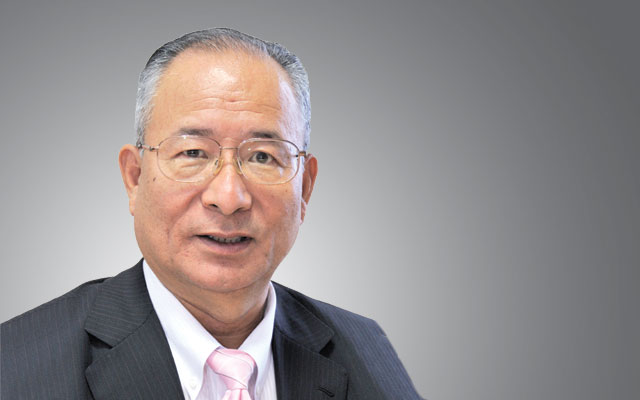Japan’s business events future is bright, says the founder of Sakura International Inc, who has been in the events industry since 1980
Let’s talk about the biggest event to impact Japan’s tourism business this year and next: the 2019 Rugby World Cup and the 2020 Summer Olympics. What do they mean for business events?
It is still too early at this stage to identify the opportunities or problems that will come out of sporting events because so much of the potential work is still in the proposal stages or is open for bidding. We will not get a clearer picture of how the 2019 Rugby World Cup will affect our business until probably next spring.

The 2020 Summer Olympics will focus more on Tokyo. How will it affect events coming into the city?
Tokyo Big Sight will be shut down and reserved for use as the main press centre and broadcasting centre during the Games. It is a boon for us, as we are the official contractors for Tokyo Big Sight, and are assisting in the fitting out of the facility for the Games. That’s a very important contract.
For the (events) industry in general, this presents difficulties because organisers have had to reschedule events and move them to other locations, which has a knock-on effect on suppliers, hotels and everyone else.
But we must remember that this is not something that has cropped up in the last couple of weeks. Organisers have had a couple of years to change dates and make alternative plans. It is likely that some companies will be affected, but they are resilient. I’m confident they will recover.
Japan’s business events sector is growing. Is that a result of these global sporting events?
There are a number of reasons, and it isn’t just because of the sporting events.
We have seen a tourism boom, and new hotels are popping up all over the country. The Japanese tourism authorities, specifically those responsible for growing business events, are far more proactive about overseas marketing. Business event buyers around the world now see Japan as a very appealing place to be.
When I first started out in the industry, Japan was quite closed off and it was hard for people on the outside to come here. That has changed dramatically.
Do you fear a post-Games downturn once the global spotlight shifts elsewhere?
Not at all. The higher profile Japan is getting as a result of these sporting events is never a bad thing. We are extremely optimistic about the next five or six years, not just what is coming in the next two years.
What types of industries are most promising for Japan’s business events sector now?
One big growth area is defence and security, as the Japanese government is investing heavily in its own defence, which has led to a rise in related events. The medical sector continues to be strong, and professional congress organisers are coming directly to us to set up events. Also, we are seeing events linked to cryptocurrency, blockchain technology, fintech and the same.
The rise in cryptocurrency events is interesting. Is it because Japan is perceived as a leader in technology?
Cryptocurrency events are taking place all over the world now, but because Japan is a relatively under-developed market in this field, overseas organisers see opportunities in Japan. They want to come here and conduct an event. We have done a lot of such events in the last two years.
What sort of business events might be big next?
It’s always hard to predict, but we are expecting more in the e-sports space. As a general rule, as soon as a new industry emerges, someone launches a tradeshow very quickly. Just look at the drone industry; there are shows everywhere now and they have only been around for five years or so. E-sports is already here, but it’s something that we want to target as a company because it’s a growing sector and has – we believe – the potential to win us a lot of work.
Sakura International has been in business events for 40 years. How do you stay competitive?
We have competitors in Japan, but I don’t think anyone else is quite as focused as we are on the international market. Our model is very much based on having offices in Osaka and Tokyo, while covering the entire country. Another key difference is that we have international staff, all of whom speak at least two languages. This allows us to provide comprehensive service to our international clients.
How do you keep clients coming back to you and Japan?
That’s the difficult part. There are many destinations for events but if we do a good job, the client will return.
The one thing we always hear from anyone who comes to Japan is that it’s not a cheap destination for events. There’s no getting around that fact but anyone who does an event here always gets more delegates than anticipated. More delegates means more income, which means the organisers are happy.
What does the future hold for Sakura International?
Our first target is an IPO in 2020, which will give us the financial platform to grow the business quickly and effectively. We want to invest in more people and set up in more overseas cities to expand our overseas network.





















